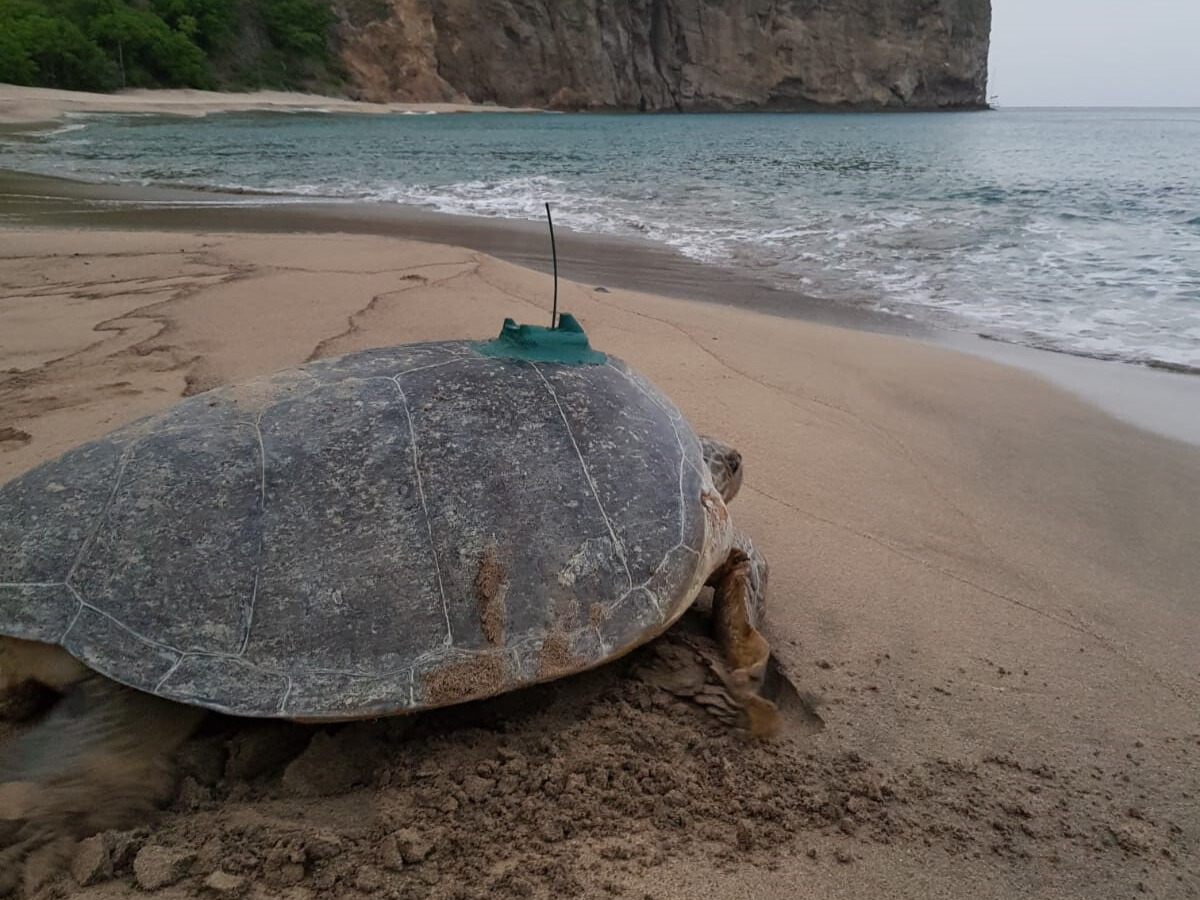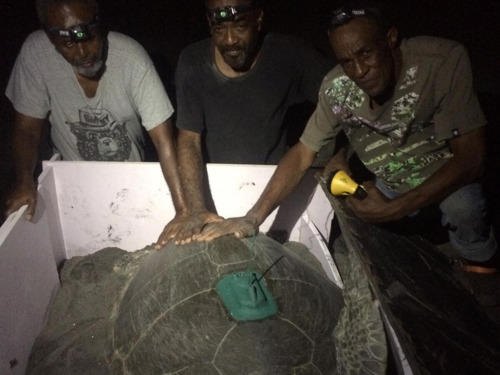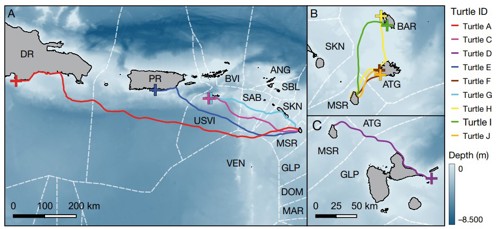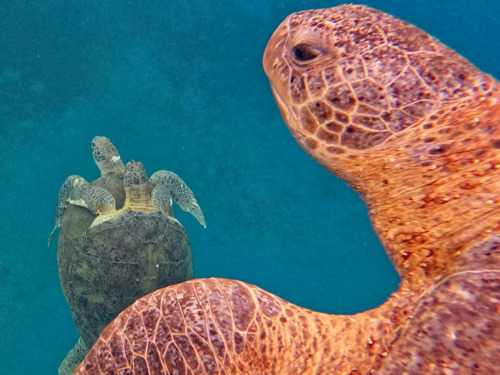Monitoring marine turtles in Montserrat

Montserrat turtle tagging. Credit - Jack Wiggins.
Montserrat’s wandering turtles highlight need for conservation without borders
Research carried out as part of the project ’A Marine Turtle Action Plan for Montserrat’ has recently been published in the journal Endangered Species Research. Around 100 turtles, mostly greens and a smaller number of hawksbills, nest each year from June to November in Montserrat. While these are modest numbers, these populations are regionally important at the Eastern Caribbean scale. The published study found that sea turtles that nest in Montserrat migrate and feed in the waters of multiple Caribbean countries and territories, highlighting the need for international conservation efforts.
Researchers from the Government of Montserrat, University of Exeter, and Marine Conservation Society attached satellite tags to ten nesting females (nine Green turtles and one Hawksbill turtle) in Montserrat, to provide insights into where they went after laying their eggs. The turtles, which typically nest multiple times during a nesting season, travelled to a variety of places across the Caribbean. The turtles in the study covered distances ranging from 45 km to 1,013 km, crossing 10 different national jurisdictions in total. Four Green turtles headed for foraging grounds in Antigua and Barbuda, two to the US Virgin Islands, one to Puerto Rico, one to the Dominican Republic, and one remained in Montserrat’s waters. The Hawksbill turtle travelled to Guadeloupe.


These findings will help with conservation planning in Montserrat, but also show that conservation actions need to be carried out cooperatively, across international borders if they are to be successful. The study also highlights protection for Montserrat’s turtles is limited, with turtles spending just over 20% of their time in Marine Protected Areas during migration and foraging. Sea turtles currently have a varied level of protection across this region. They face a multitude of threats, including legal and illegal fishing, habitat destruction and the impacts of climate change. This study highlights the importance of Montserrat for sea turtles and helps to identify focal points for protection in a changing climate. The final output of the project is a Marine Turtle Action Plan to guide conservation efforts which will safeguarding critical habitats, foster regional collaboration, and address the challenges posed by climate change and human activities to ensure the survival of these species for future generations.

Written by Nicola Weber. For more information on this Darwin Plus Main project DPLUS106, led by University of Exeter, please click here.

 Back
Back